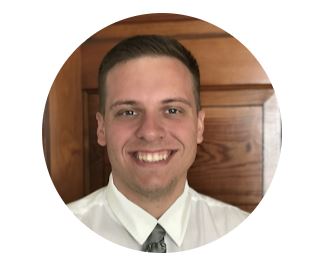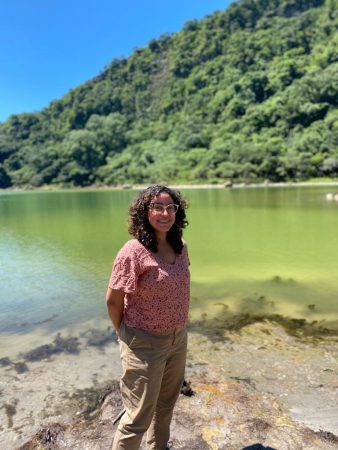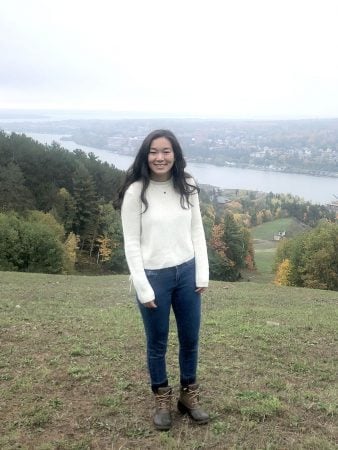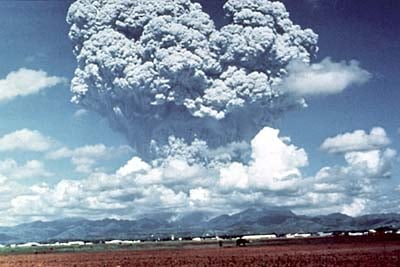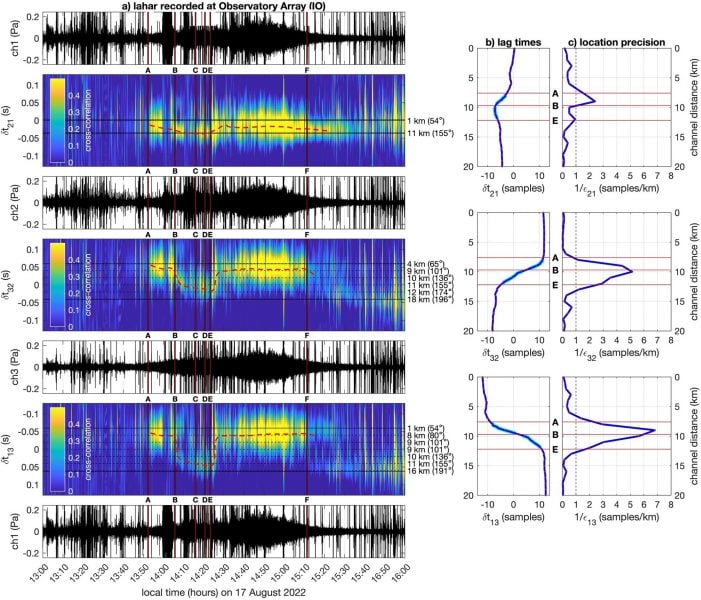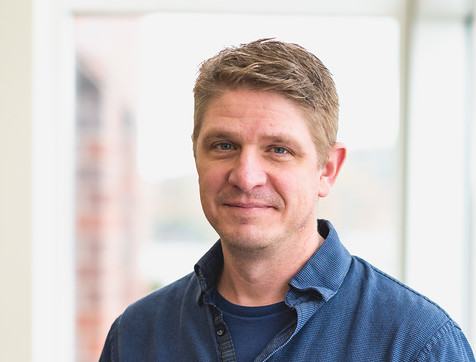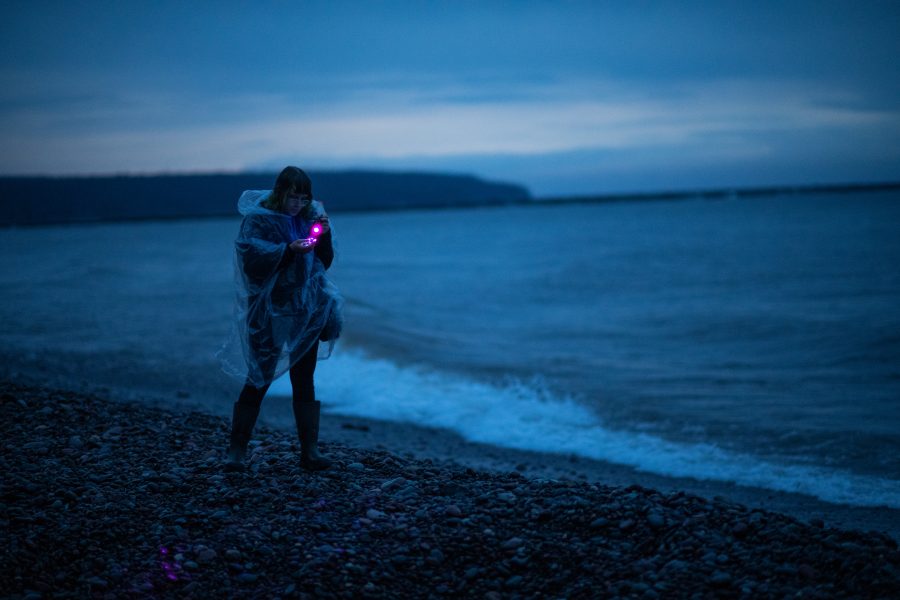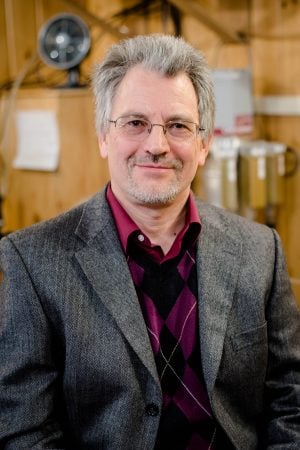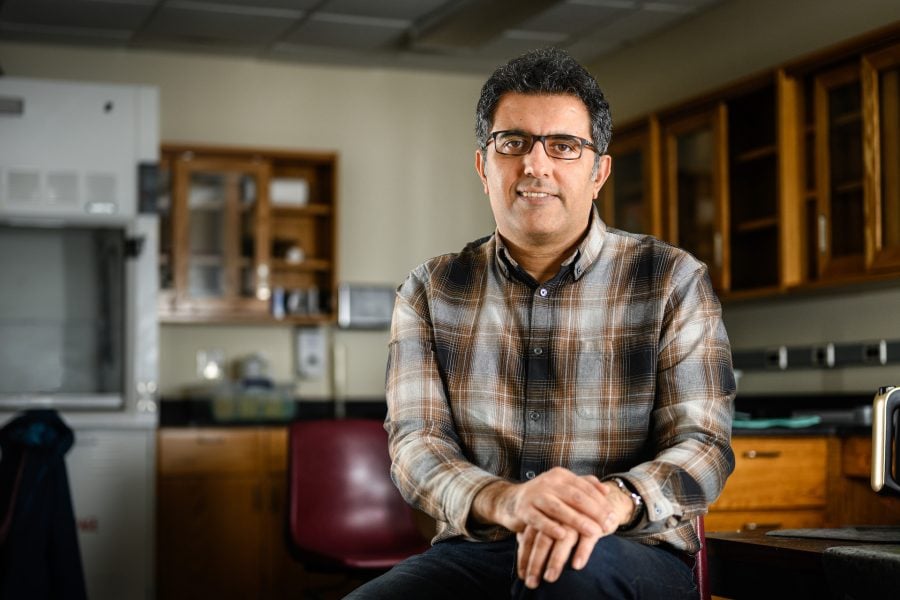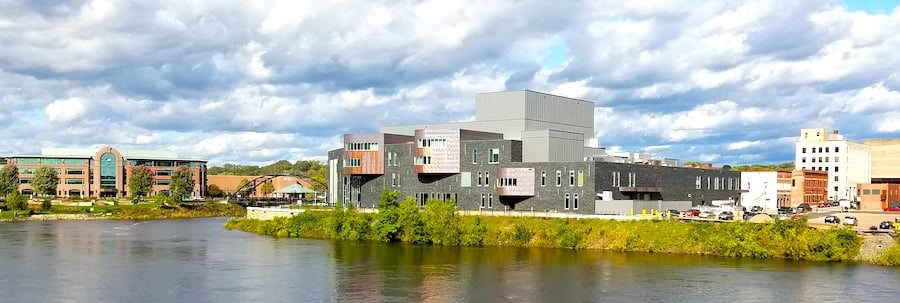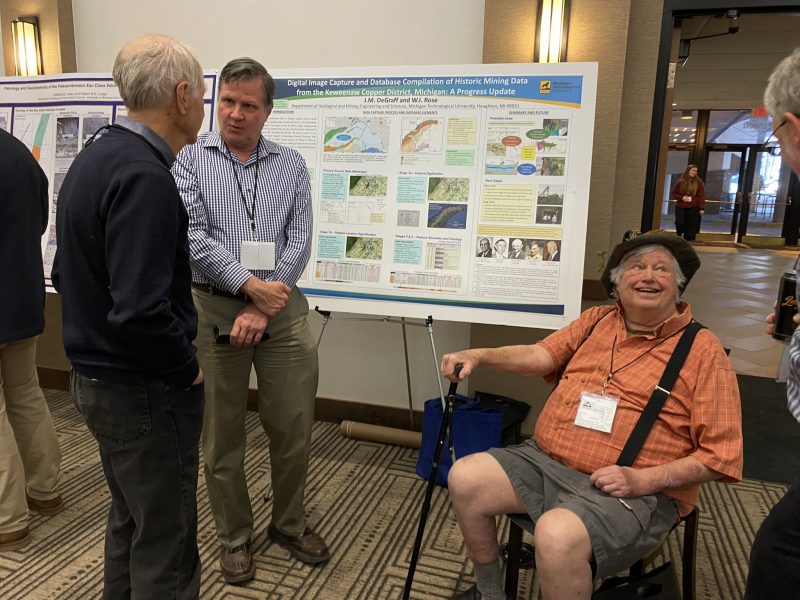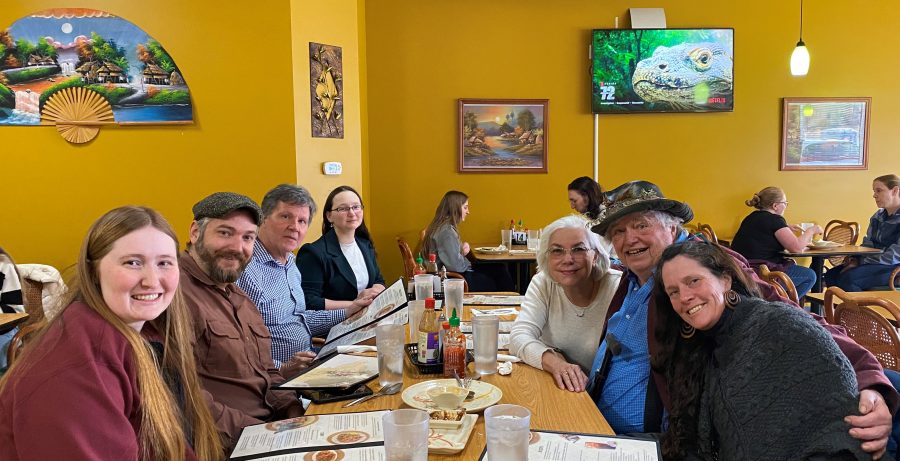On April 21, 2023, Caleb Kaminski demonstrated resounding success in defending his research for his Geophysics Master of Science degree.
Advised by Aleksey Smirnov, with Paul van Susante and Jeremy Shannon as committee members.
Title: Exploring Ground-Penetrating Radar Responses to Basaltic Terrain for Upcoming Lunar Expeditions
Abstract: In preparation for upcoming lunar expeditions, a comprehensive understanding of the Moon’s geophysical properties is imperative, particularly in the context of resource identification and extraction. This study focuses on the experimental characterization of electromagnetic (EM) behavior in the radio spectrum for ground-penetrating radar applications, utilizing basaltic Keweenawan stamp sand and highland lunar simulant soil test materials with varying particle grades. Under controlled laboratory conditions, we systematically analyzed and compared the differences in EM wave velocity and signal amplitude as a function of particle size and mineralogy, as represented in radargrams. Our findings demonstrate that the highland lunar simulant exhibits a significantly higher EM reflection coefficient than the stamp sand, which can be attributed to its lower conductivity arising from compositional differences. These results hold important implications for the development of remote sensing techniques and optimization of ground-penetrating radar systems for future lunar missions, ultimately enabling the efficient detection and extraction of valuable resources such as water ice on the lunar surface.
